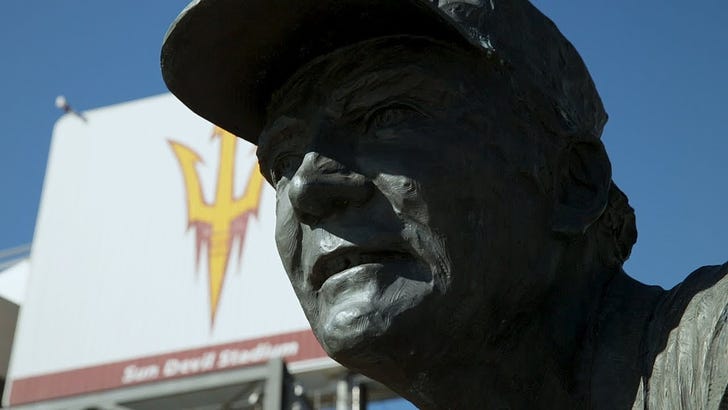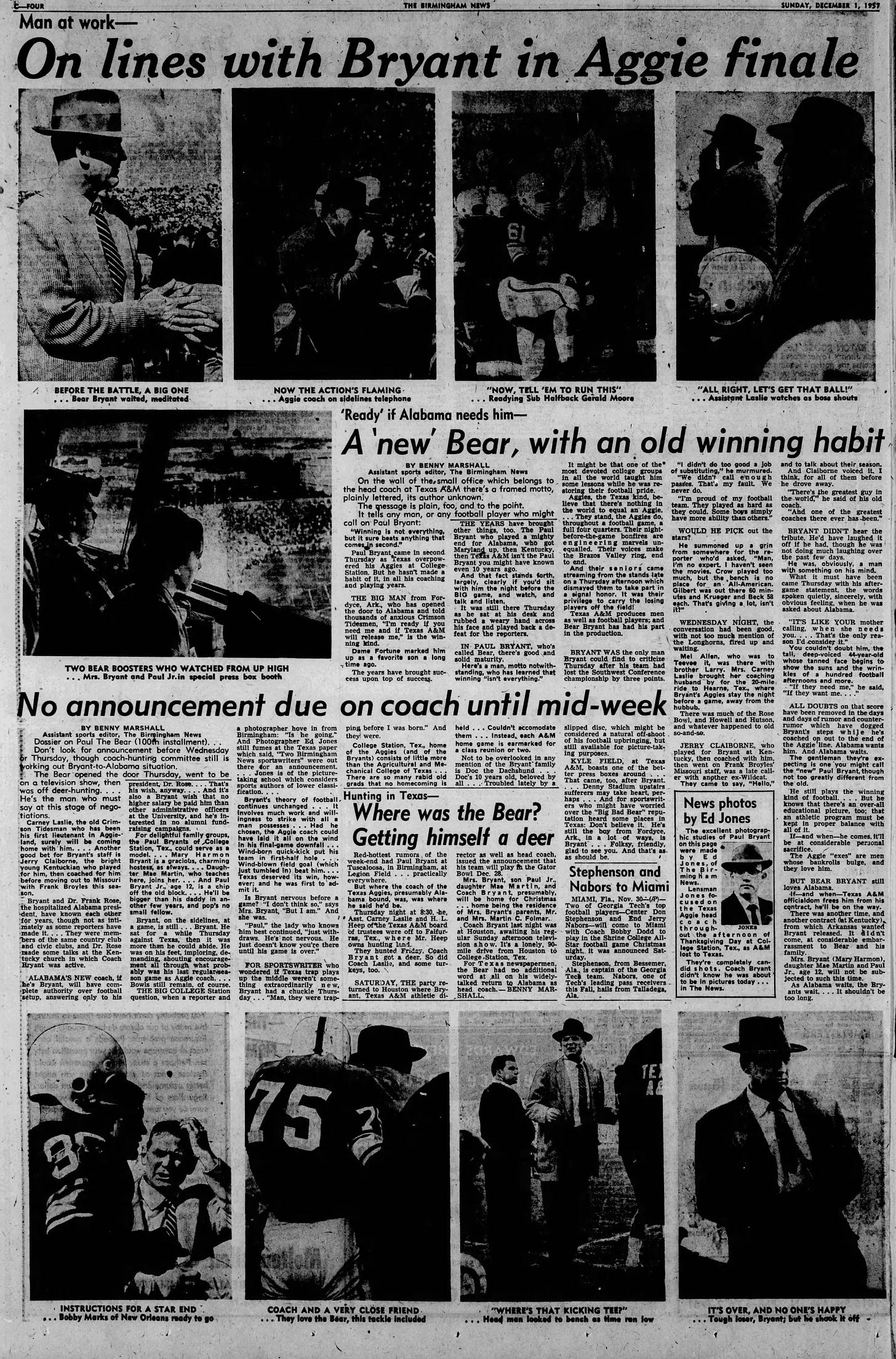Dead Conferences Part 2, Chapter 2: Frank Kush and Arizona State Start A College Football Fiesta
Frank Kush's two decades coaching Arizona State football transformed the Western landscape — and the sport as a whole for decades to come.
Five years before the formation of the Western Athletic Conference, Arizona State completed its best season in the program’s history to that point with a 47-7 decimation of rival Arizona. The blowout capped a perfect, 10-0 season for the Sun Devils in which they dominated all comers by an average of 33.1 points per game.
With their success came the inevitable curse of non-traditional programs enjoying unprecedented success: The Sun Devils watched as wunderkind coach Dan Devine, age 33, received interest from a variety of more prominent suitors. Among the candidates vying for Devine’s services as head coach was Texas A&M, which spent three weeks of the 1957 season at No. 1 until a campaign-ending slide.
Compounding the sting of dropping 7-6 and 9-7 decisions to Rice and Texas for A&M before a 3-0 loss in the Gator Bowl, A&M also lost coach Paul “Bear” Bryant to Alabama.
In an era long before message-board rumor-mongering and social-media hysteria, the Birmingham News ran a full-page spread on Bryant in its Dec. 1, 1957 edition — days before Bear formally became the Alabama coach.
The ensuing Texas A&M vacancy trickled West to Tempe, where Devine ever-so-briefly became a hot name tied to Bryant’s former post. But Devine instead landed at Missouri, a program he helmed from 1958 through 1970. In that time, the Tigers finished ranked in the AP Poll’s Top 20 six times, five of which they were selected No. 11 or better. That topped the final No. 12 ranking Devine’s Arizona State team earned in 1957.
Actually, the ‘57 Sun Devils peaked at No. 11 but fell a spot one week after destroying Arizona. ASU, one of only two teams in the University Division with unblemished records1 that season, was jumped by 6-3-1 and previously unranked Texas as reward for the Sun Devils completing their perfect docket.
That wasn’t the only “reward;” Arizona State also went without a bowl game. The 1957 postseason instead featured aforementioned losing the Sugar Bowl to Ole Miss, 39-7 and Duke being run over by Oklahoma in the Orange Bowl, 48-21.
The only team West of the Rio Grande in a bowl game was Pacific Coast Conference champion Oregon, 7-3 and unranked at the time of its Rose Bowl Game matchup with co-national champion Ohio State. To the Webfoots’ credit, they gave the Buckeyes all they could handle in a 10-7 Granddaddy.
But with the West’s preeminent conference locked into the Rose Bowl Game, a burgeoning competitor like Arizona State had nowhere to go. Even the Sun Bowl, which hosted plenty of Border Conference teams since its inception, instead featured Louisville and Drake in its New Year’s Day 1958 edition.
With the concrete-reinforced glass ceiling that limited Arizona State in its Border Conference days, it’s no wonder a rising young coach like Dan Devine left for another opportunity. After all, his Missouri teams never struggled to find a bowl opportunity when they deserved one — and perhaps sometimes, even when they didn’t. Devine’s second Tigers squad went to the 1960 Orange Bowl despite an unimpressive 6-4, the result of the Miami-based contest not inviting teams in consecutive years. Missouri went in Big 8 champion Oklahoma’s place as a result and lost to Georgia, 14-0.
Such is the plight of programs lower on the college football food chain. And Devine’s departure from Arizona State after only three seasons makes the enduring tenure of his successor, Frank Kush all the more remarkable.
Kush coaching Arizona State for more than 20 years and throughout its entire stay in the Western Athletic Conference wasn’t because other programs lacked interest in the 1995 College Football Hall of Fame inductee. On the contrary, this retrospective by Phoenix-area sports journalist Doug Haller on the 50-year anniversary of Kush’s flirtation with Pitt details an offer that was very nearly consummated.
Kush had other institutions try to woo him away as far back as 1957. In the offseason before the Sun Devils’ 10-0 run under Devine, Kush passed on an offer from an unnamed “eastern school” to take over the line. It was a decision that, at the time, garnered only a single-column brief in the Feb. 19 Arizona Republic.
Had anyone been able to see 20 years into the future, Kush’s passing on this unspecified position would have warranted a full-page spread akin to the Birmingham News coverage of Bear Bryant.
Keep reading with a 7-day free trial
Subscribe to Press Break to keep reading this post and get 7 days of free access to the full post archives.





